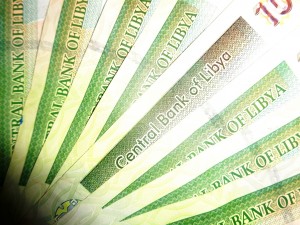By Sami Zaptia.

London, 22 January 2021:
The cost of the Minimum Expenditure Basket (MEB) across Libya rose by 1.3% (LD 9.54) to LD 729 from October to November 2020 or 16% more expensive in November, when comparing to preCOVID-19 levels in March 2020. The findings come in the latest report published yesterday by Swiss-based international NGO, REACH.
The Minimum Expenditure Basket (MEB) represents the minimum culturally adjusted group of items required to support a five-person Libyan household (HH) for one month. The cost of the MEB can be used as a proxy for the financial burdens facing households in different locations.
REACH is a joint initiative of two international non-governmental organizations – ACTED and IMPACT Initiatives – and the UN Operational Satellite Applications Programme (UNOSAT). It facilitates the development of information tools and products that enhance the capacity of aid actors to make evidence-based decisions in emergency, recovery and development contexts. REACH activities are conducted through inter-agency aid coordination mechanisms.
Liquidity Crisis
The liquidity crisis continues to impact households. A number of recent reports have indicated that the liquidity crisis in Libya is a growing concern for the population, as households are not able to withdraw sufficient amounts to meet needs.
Only 4.7% of interviewed customers in Libya overall were able to purchase the items necessary to meet their basic needs using cash withdrawn from banks in the 30 days prior to data collection.
The report stated that 83% of interviewed customers reported being unable to withdraw cash from bank while 56% of interviewed customers reported exchanging cheques for cash on the parallel market
Interviewed customers lost on average 27% of the cheque value during parallel market exchange.
After the lifting of the oil blockade in September 2020, disagreements surrounding the distribution of the oil revenues have meant that approximately 2.6bn EUR are frozen in a Libyan Foreign Bank account. Without appropriate allocation to the relevant authorities, the parallel market exchange rate is likely to remain high, whilst also preventing any redress of the ongoing liquidity crisis.
Black-market exchange rate
The report stated that as of 12th December 2020, the parallel market USD/ LYD exchange rate dropped by 7% compared to 1st October 2020. Nonetheless, the USD/LYD exchange rate was still 42.7% lower in December 2020 than December 2019.
Cooking fuel prices
After two months of functioning oil refineries, it reported that parallel cooking fuel prices in south Libya have decreased by 48%, particularly in Algatroun, Ghat and Ubari. Amongst these three cities the median costs of a cooking fuel cylinder in October were between 115 LYD and 220 LYD, compared to between 55 LYD and 95 LYD in November 2020.
Southern fuel prices in November 2020 were only 24% more expensive than before the oil blockade in January 2020. The drop in the cost of cooking fuel prices should partially alleviate the financial burdens for southern households that witnessed fuel prices increase by 370% from January to April 2020.
Large fluctuations in agricultural goods
Between August to November 2020, there have been large price fluctuations for domestically produced agricultural goods, such as onions (+44%), eggs (+47%) and tomatoes (+51%). According to KIs, the price increases can be attributed to a delay in western output. These delays in production were caused by the summer power cuts and conflict related barriers in the Jafara region.
Rental costs
According to a November IOM report, “more than half of migrants (54%) reported adopting livelihood coping strategies to be able to afford rental costs”.







